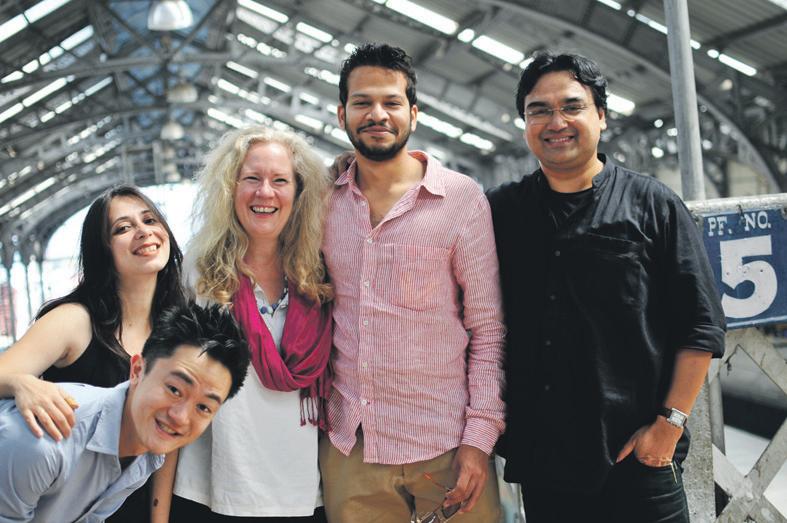
1 minute read
bookwallah aaya!
from 2013-09 Sydney (2)
by Indian Link
of Indian literature. Chandrahas’ introduction to Australia was through cricket and he wrote regularly for the Wisden Bulletin on this subject.
Another important traveller, or rather travellers, on The Bookwallah journey in India were the six handcrafted suitcases filled with books which could be turned to a portable library, and vice versa, in a matter of fifteen minutes.
These ingenious cases were created by Georgia Hutchison and Rob Sowter and made of Australian hardwood, plyboard and vegetable-dyed kangaroo leather. The writers spoke of their adventures and misadventures lugging these beautifully crafted colourful cases around trains and hotels in India. Due to their size, the cases travelled in the rail luggage compartments, at times in the company of coffins, and were once soaked in drippings of water from frozen fish in the journey from Mumbai to Goa. A good rubbing of eucalyptus oil later, they were ready for more travelling! At the various destinations, the travelling writers would empty these suitcases to set up the library filled with offerings from classic and contemporary Australian writers, using the cases as seats at times, and referring to the books to discuss aspects of Australian culture and literature.
The writers bonded well on their three-week journey through southern India, the proximity forced by travelling on Indian trains not withstanding! They did not know each other at all at the start of the Indian leg of The Bookwallah journey, but it was evident that they had become the best of friends in the Australian leg of the journey. Kirsty said that the trip had opened up a window to each other’s culture, and Benjamin said that it helped to eliminate the blind spots. Travelling through
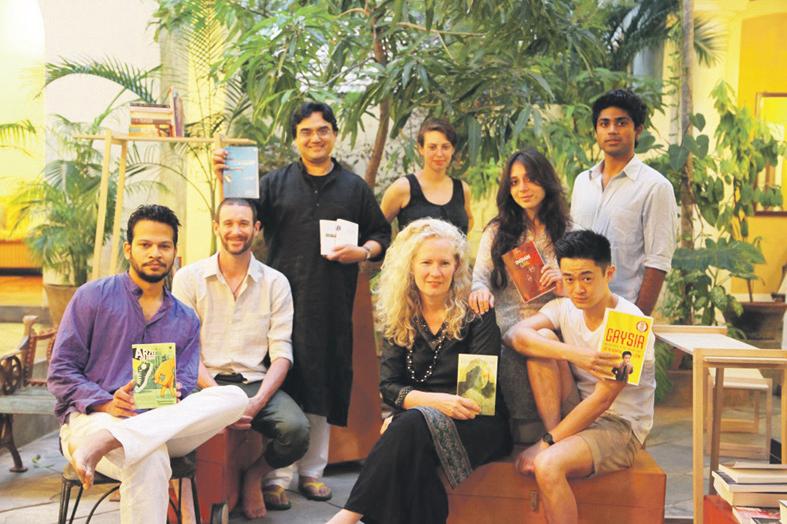
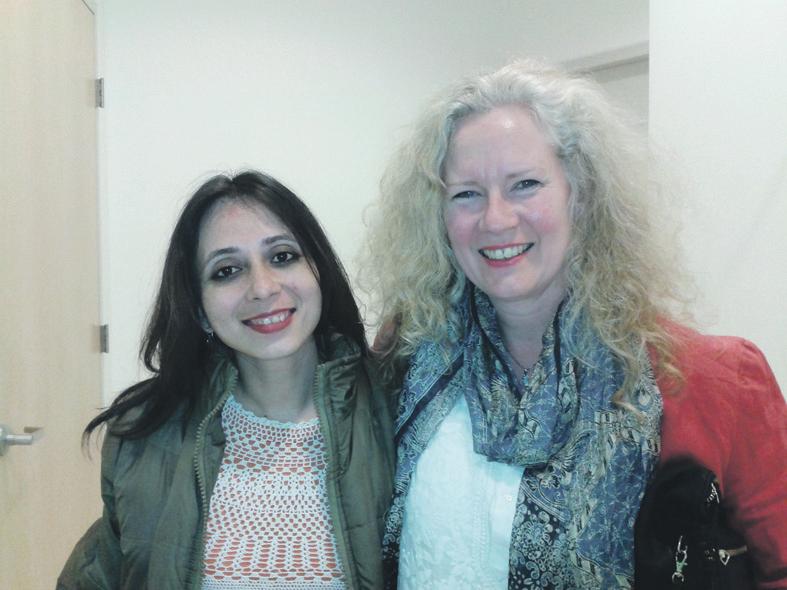
Main photo: The Bookwallahs in Sydney
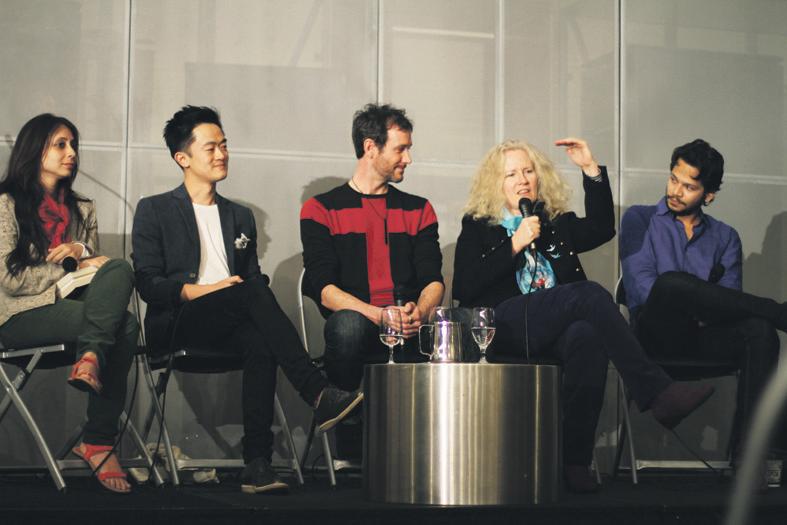
Clockwise, top to bottom: The Bookwallahs
Arriving in Pondicherry
During their speech
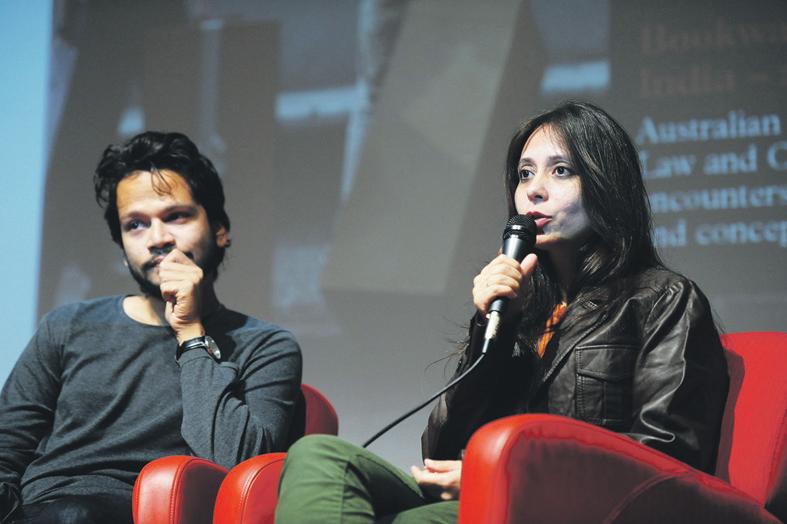
Chandrahas and Annie Annie and Kirsty
India they realised how few Australian books were available in Indian bookstores and libraries. They redeemed this by leaving collections for public use.
“Though electronic books are becoming very popular, it has not diminished the value of physical books in preserving the words and memories of people, especially in a country like India where millions have little access to books, let alone e-readers,” remarked Annie.
Benjamin rightly concluded saying, “A physical book has a tradition, a currency and a respect imbued in it that was hard to beat”.
And then, if there were no paper books, how would The Bookwallah leave memories, conversations, essays and stories for many others to access?
This project is the welldeserved winner of the Federal Government’s inaugural Australian Arts in Asia Award in the category of community engagement.










